syn·site
1: HYBRID SITE[S] An active assemblage sourced from a dislocated, fractured network of sites.
2: SYNTACTICAL TOOL A verb-noun concatenation——process embedded in, affecting, and affected by site——with an assertive threshold calling attention to itself between the two. To understand this hybridity of site is to see the hyphenated construct itself as a tool—to see in its syllabic nodes and articulated connection a self-aware mirage.
< ORIGIN > The SITE/NON-SITE theory of Robert Smithson in which, by and large, the NON-SITE is presented as a factor of a singularly located SITE... < TODAY > calls for a SYN-SITE.
1: HYBRID SITE[S] An active assemblage sourced from a dislocated, fractured network of sites.
2: SYNTACTICAL TOOL A verb-noun concatenation——process embedded in, affecting, and affected by site——with an assertive threshold calling attention to itself between the two. To understand this hybridity of site is to see the hyphenated construct itself as a tool—to see in its syllabic nodes and articulated connection a self-aware mirage.
< ORIGIN > The SITE/NON-SITE theory of Robert Smithson in which, by and large, the NON-SITE is presented as a factor of a singularly located SITE... < TODAY > calls for a SYN-SITE.
SYN (along with, at the same time | from Greek SYN, with | ~SYNTHETIC) + SITE (N: point of event, occupied space, internet address; V: to place in position | from Latin SITUS, location, idleness, forgetfulness | ~WEBSITE ¬cite ¬sight), cf. SITE/NON-SITE (from Robert Smithson, A PROVISIONAL THEORY OF NONSITES, 1968)



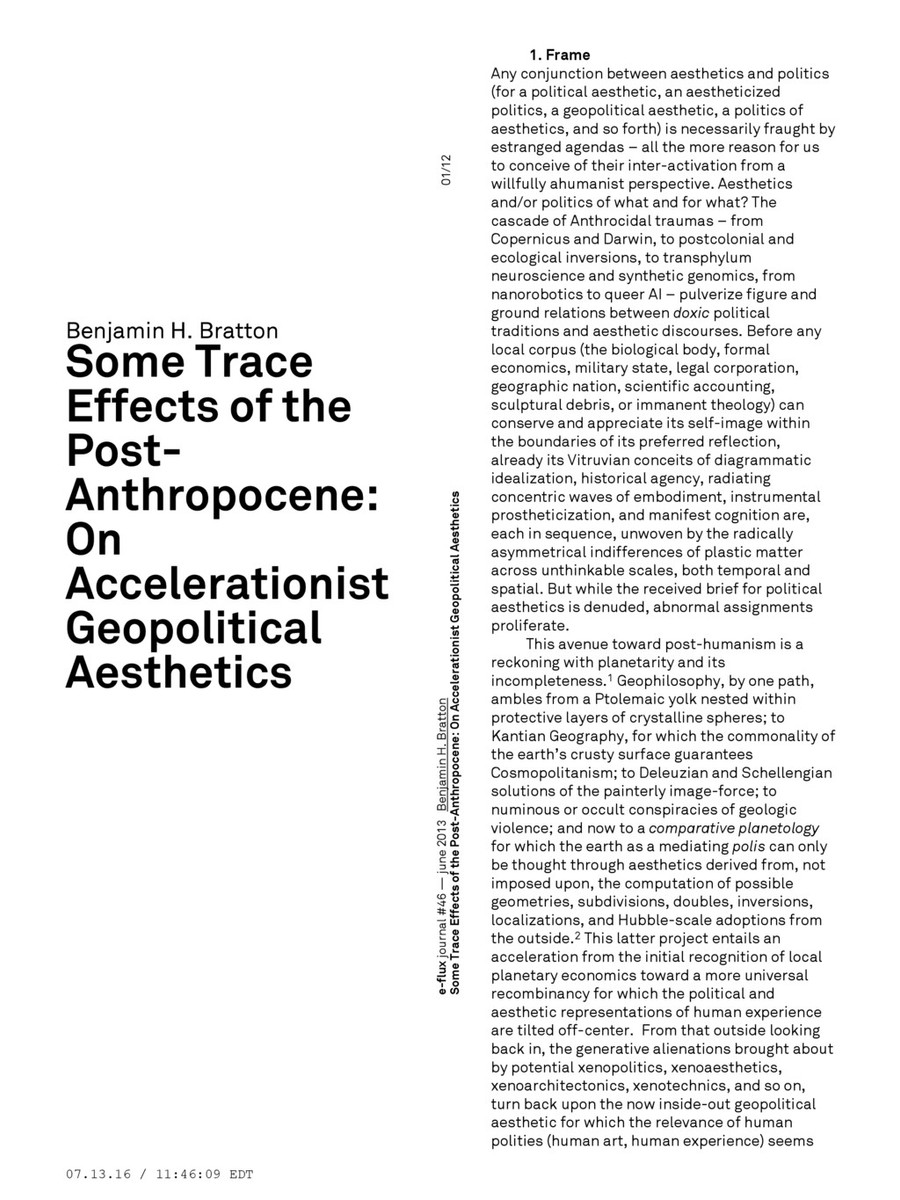





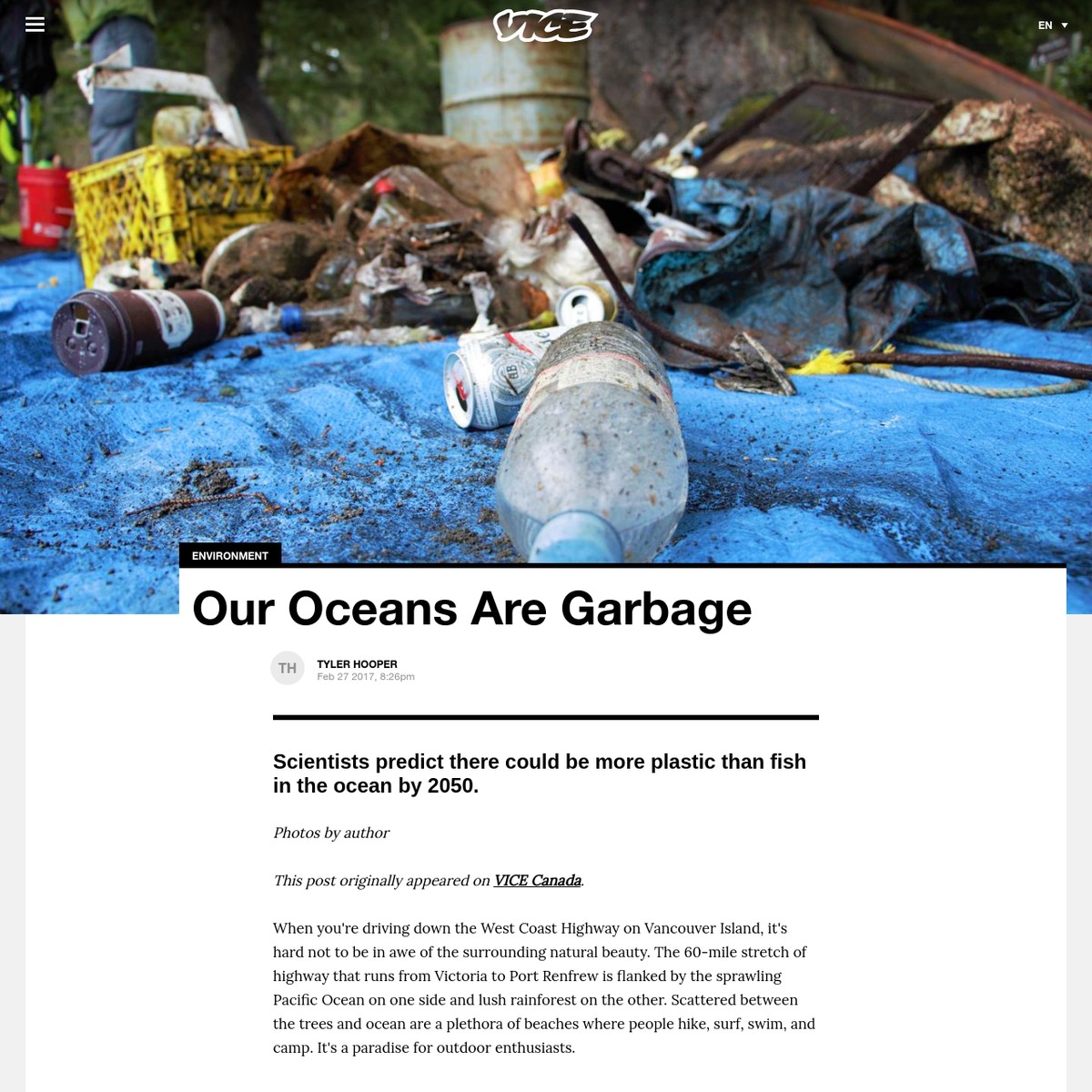





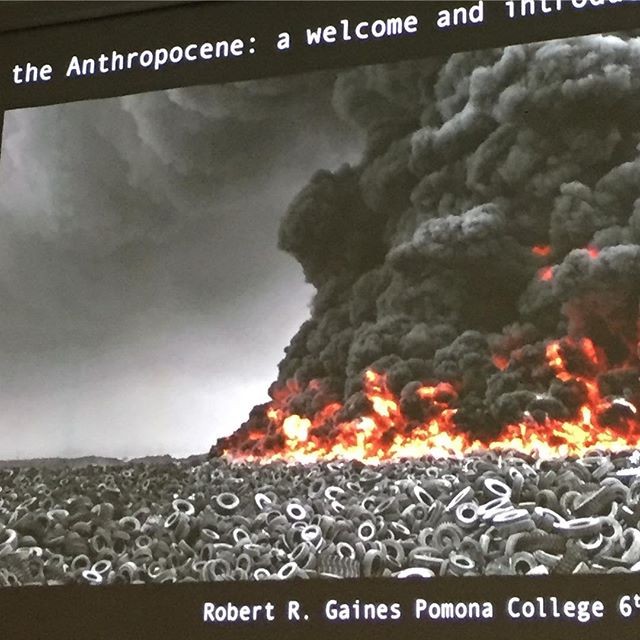


"Part of the Anthropocene’s appeal was the sound of the word itself: portentous, stately, vaguely Latinate, imbued with a dark majesty. Another part of its appeal was its capaciousness — large enough to swallow the whole planet and everything that lives on it."
— Wesley Yang, NYT Magazine (via https://www.nytimes.com/2017/02/14/magazine/is-the-anthropocene-era-a-condemnation-of-human-interference-or-a-call-for-more.html)
"Part of the Anthropocene’s appeal was the sound of the word itself: portentous, stately, vaguely Latinate, imbued with a dark majesty. Another part of its appeal was its capaciousness — large enough to swallow the whole planet and everything that lives on it."
— Wesley Yang, NYT Magazine (via https://www.nytimes.com/2017/02/14/magazine/is-the-anthropocene-era-a-condemnation-of-human-interference-or-a-call-for-more.html)
"Part of the Anthropocene’s appeal was the sound of the word itself: portentous, stately, vaguely Latinate, imbued with a dark majesty. Another part of its appeal was its capaciousness — large enough to swallow the whole planet and everything that lives on it."
— Wesley Yang, NYT Magazine (via https://www.nytimes.com/2017/02/14/magazine/is-the-anthropocene-era-a-condemnation-of-human-interference-or-a-call-for-more.html)
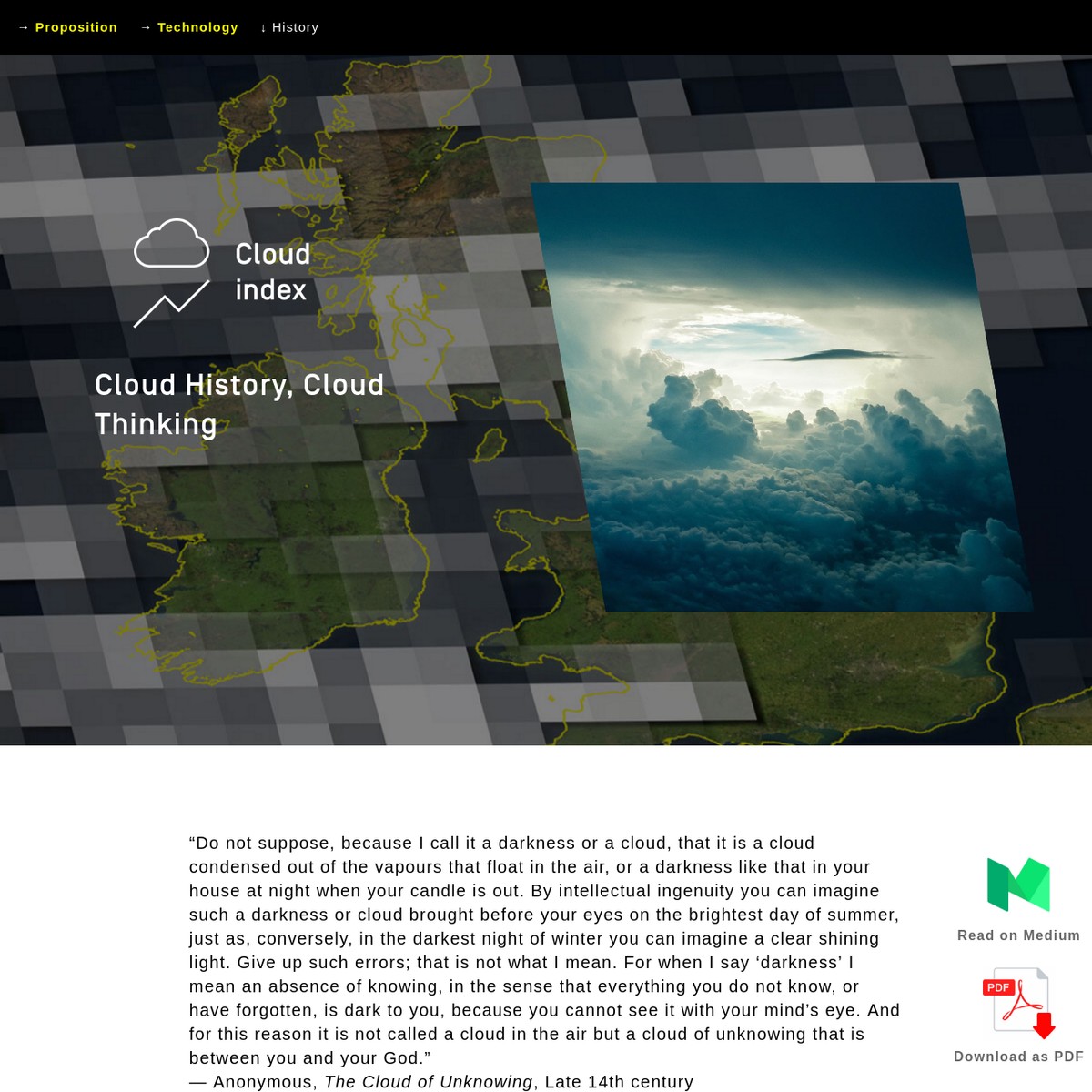





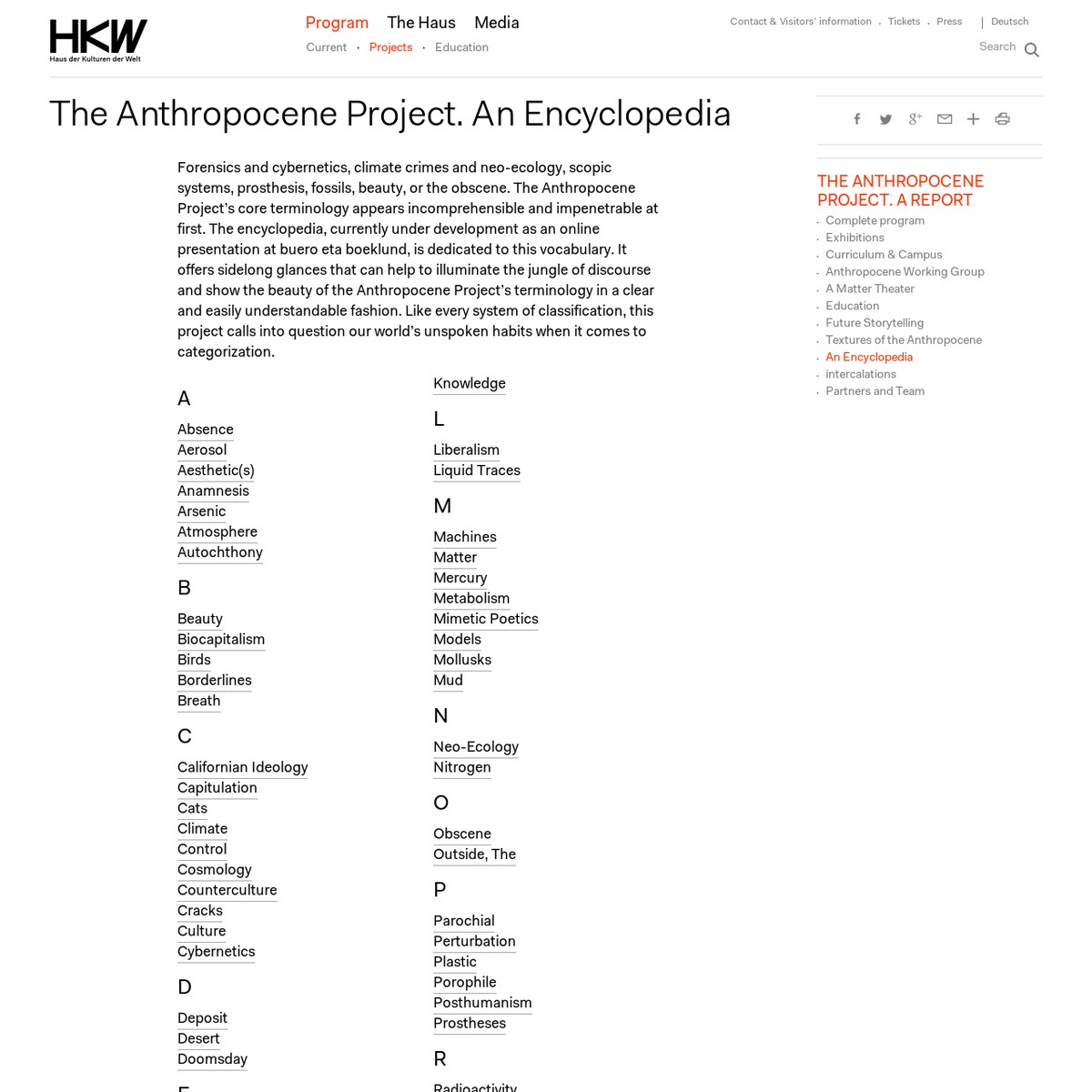


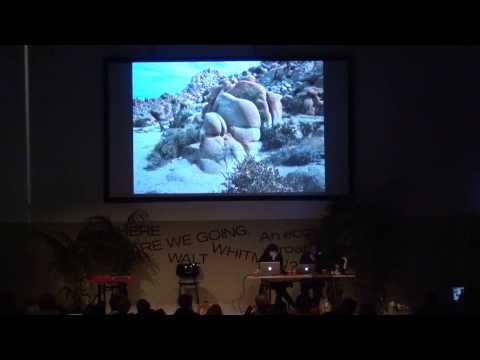


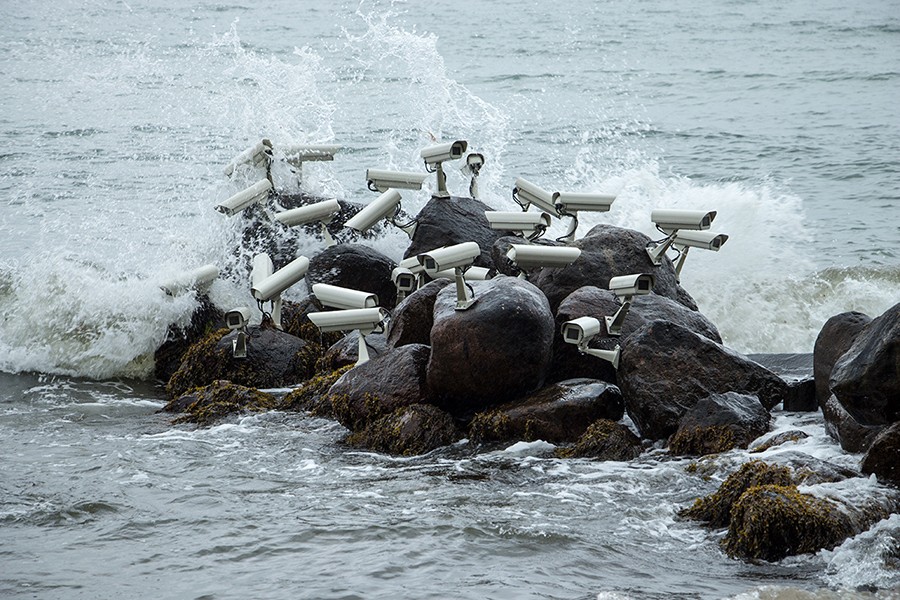


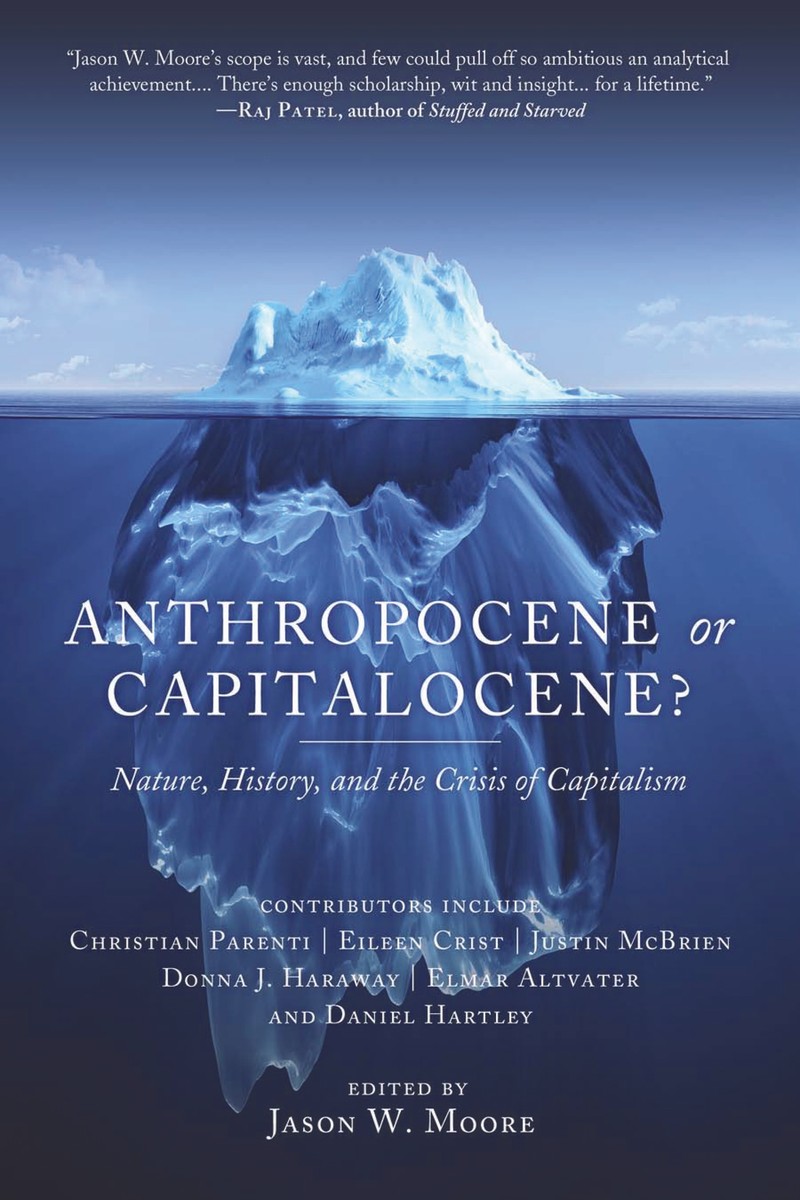





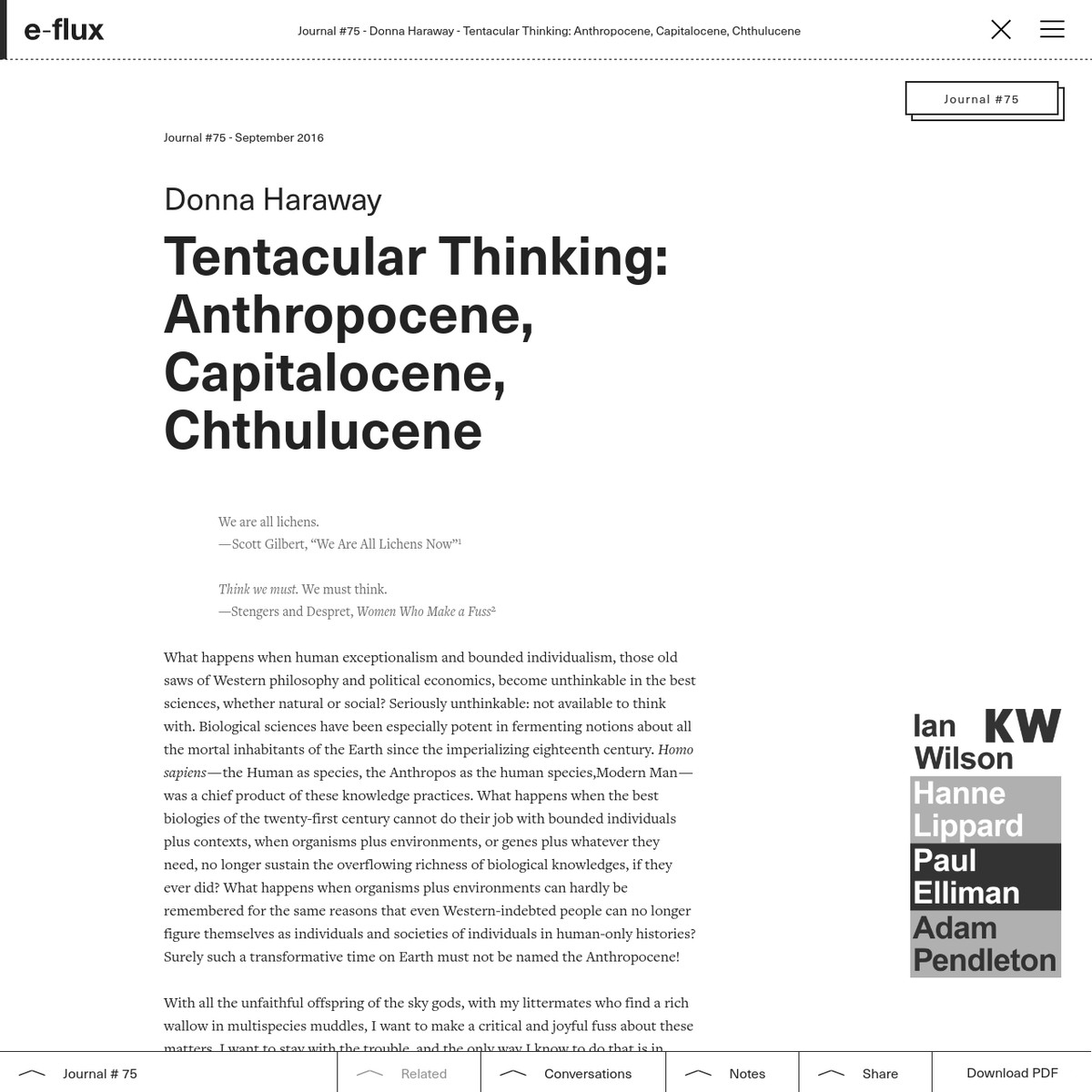





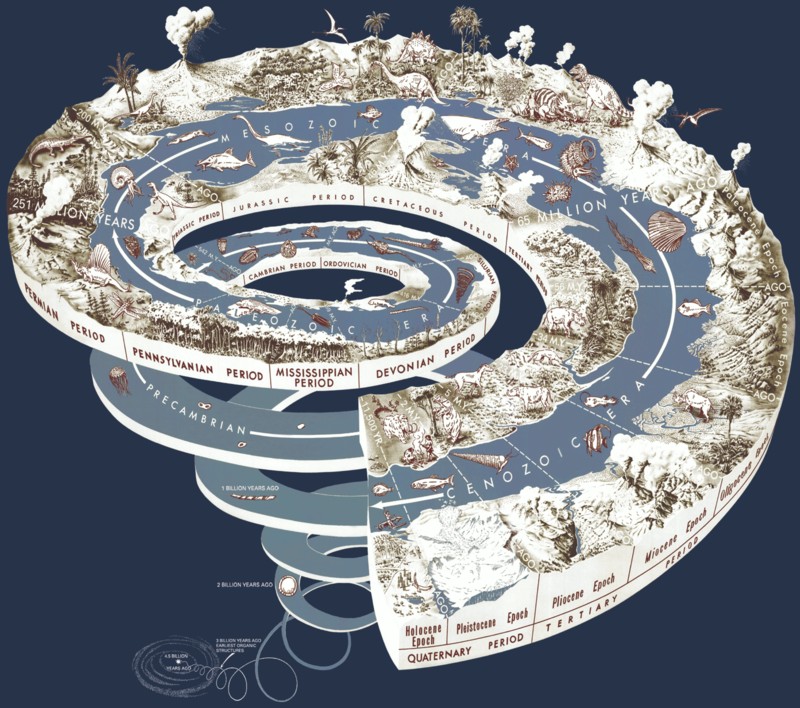


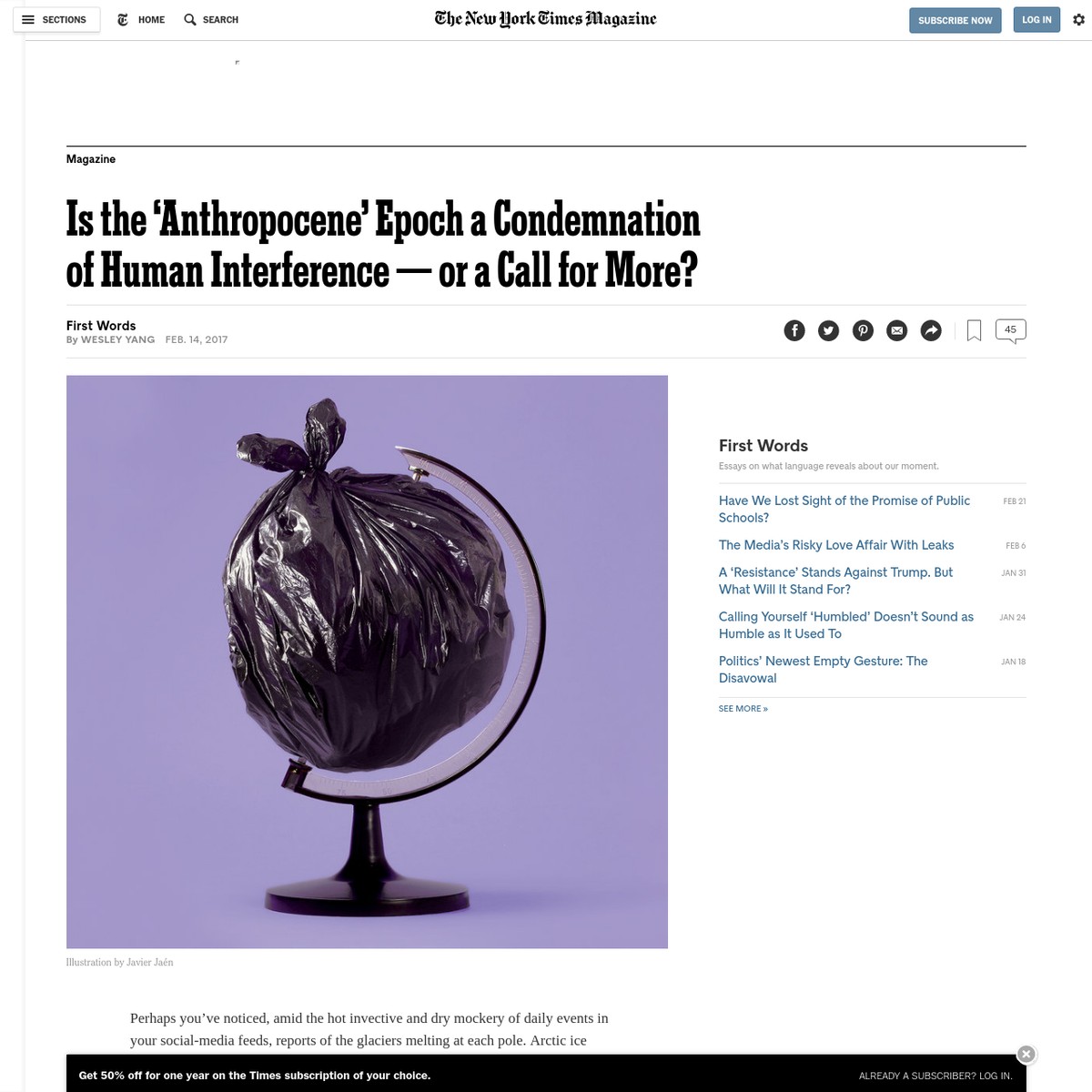


James Bridle on Wexler's warnings about indirect climate change (in the context of aspirational climate control):
"Before going into the details of several proposed weather modification programmers, Wexler gave a stark warning. He cited rising carbon dioxide emissions from industry, and the use of chlorine and bromine in rocket fuel as examples of indirect weather control. This tinkering might result in “rather large-scale effects on general circulation patterns in short or long periods, even approaching that of climatic change. Make no mistake,” he said, “We are in weather control now.”
James Bridle on Wexler's warnings about indirect climate change (in the context of aspirational climate control):
"Before going into the details of several proposed weather modification programmers, Wexler gave a stark warning. He cited rising carbon dioxide emissions from industry, and the use of chlorine and bromine in rocket fuel as examples of indirect weather control. This tinkering might result in “rather large-scale effects on general circulation patterns in short or long periods, even approaching that of climatic change. Make no mistake,” he said, “We are in weather control now.”
James Bridle on Wexler's warnings about indirect climate change (in the context of aspirational climate control):
"Before going into the details of several proposed weather modification programmers, Wexler gave a stark warning. He cited rising carbon dioxide emissions from industry, and the use of chlorine and bromine in rocket fuel as examples of indirect weather control. This tinkering might result in “rather large-scale effects on general circulation patterns in short or long periods, even approaching that of climatic change. Make no mistake,” he said, “We are in weather control now.”